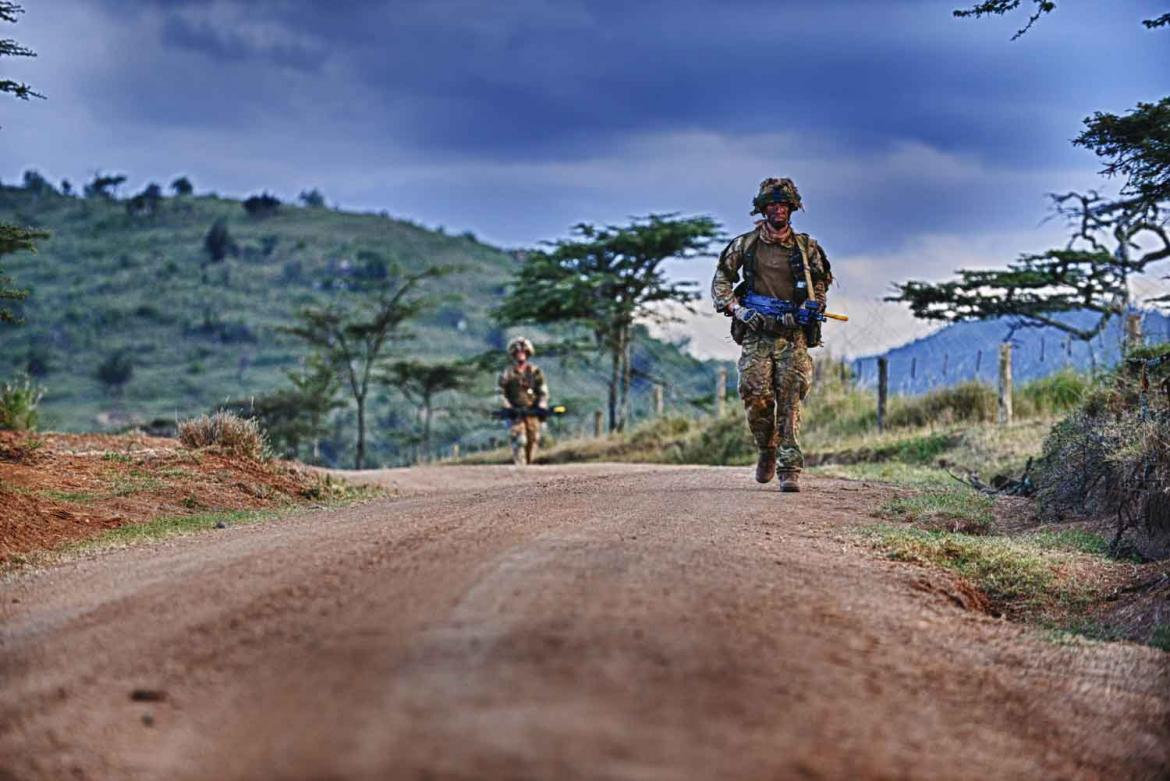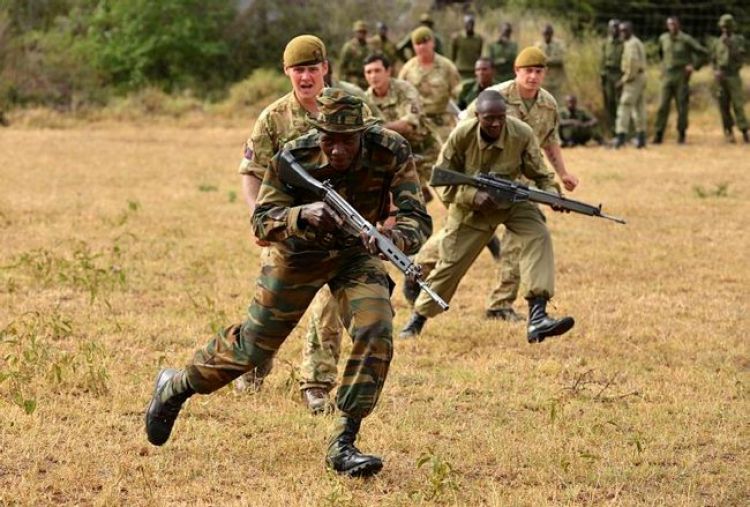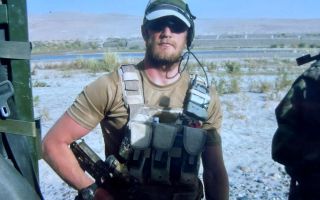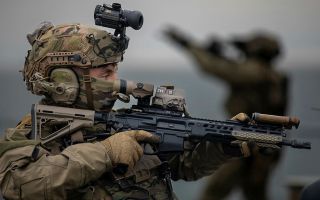
Tri-Service
Heatstroke Soldier Awarded £275,000

A former soldier who developed a debilitating chronic condition after suffering from heatstroke while on exercise in Kenya has been awarded £275,000 in damages from the Ministry of Defence, lawyers said today.
Barney Tipping has had a five-year battle for compensation after taking part in an exercise in Kenya in preparation for a tour of Afghanistan in March 2007.
More from Forces TV: SAS Deaths: Coroner Delivers Neglect Conclusion
A spokeswoman for his lawyers said:
"After marching in extreme heat for several hours, wearing a heavy backpack, Mr Tipping began suffering from heat exhaustion and dehydration.
"His platoon sergeant ordered that he remove his shirt and a jerry can of cold water was thrown over him, despite this being against Army guidelines in relation to heat injuries."
"He went into shock, was transferred by air ambulance to a hospital in Nairobi for treatment and later medevacked home to the UK.
"The march was part of a two-week pre-deployment exercise that saw Mr Tipping's platoon marching and undertaking attack exercises against the clock, at the peak of the day in temperatures reaching over 40C.
"This happened on a number of occasions, despite Army guidelines stating that soldiers should remain undercover when temperatures reached this level.
Soldiers from the 1st Battalion Welsh Guards in Kenya
"At times, the soldiers were living with very limited water supplies and on the day of the exercise in question were not given a briefing on the risks of heat injury. Some 26 other soldiers suffered from heat exhaustion that day."
Mr Tipping, 27, who lives in Gloucestershire, said: "I loved the Army and always wanted to be a soldier. I was fit and healthy and always rose to any challenge, including the arduous marches we undertook in Kenya. Despite the soaring temperatures I followed orders and pushed my body to the maximum because in the forces that is what you are trained to do.
"My superiors knew this and should never have put us in that position given the risk we were taking and the Army guidelines relating to heat.
"I expected to have a long career in the Army and after Afghanistan wanted to become one of the Army's personal trainers, but all that changed after what happened in Kenya.
"I now live with constant pain and am unable to undertake many basic tasks. I try to live a normal life with my wife and family but my physical limitations and the mental impact of what has happened to me mean that day-to-day life is very difficult."
The lawyers said that on Mr Tipping's return to the UK, he began to experience what he now knows to be symptoms of fibromyalgia, which continued to worsen over a period of months and while fighting in Afghanistan. By early 2008, he was experiencing photosensitivity, severe eye pain, double vision, exhaustion and severe joint pain.
"His condition continued to deteriorate and he underwent countless medical examinations and tests by Army medical personnel. His condition was neither correctly diagnosed, nor was his account of his now chronic pain believed by certain military personnel.
"He was accused of exaggerating and medical staff refused him appropriate treatment and care, giving him large amounts of medication for conditions that he didn't have. Army psychologists suggested that he was 'revelling in the sick role' and that he was copying his reported injuries from other injured people."
"Mr Tipping was medically discharged from the Army in October 2009. He remains in constant pain, is unable to work and requires considerable help with day-to-day tasks.
Take a look below at British Army reservists undergoing parachute training in Kenya...








